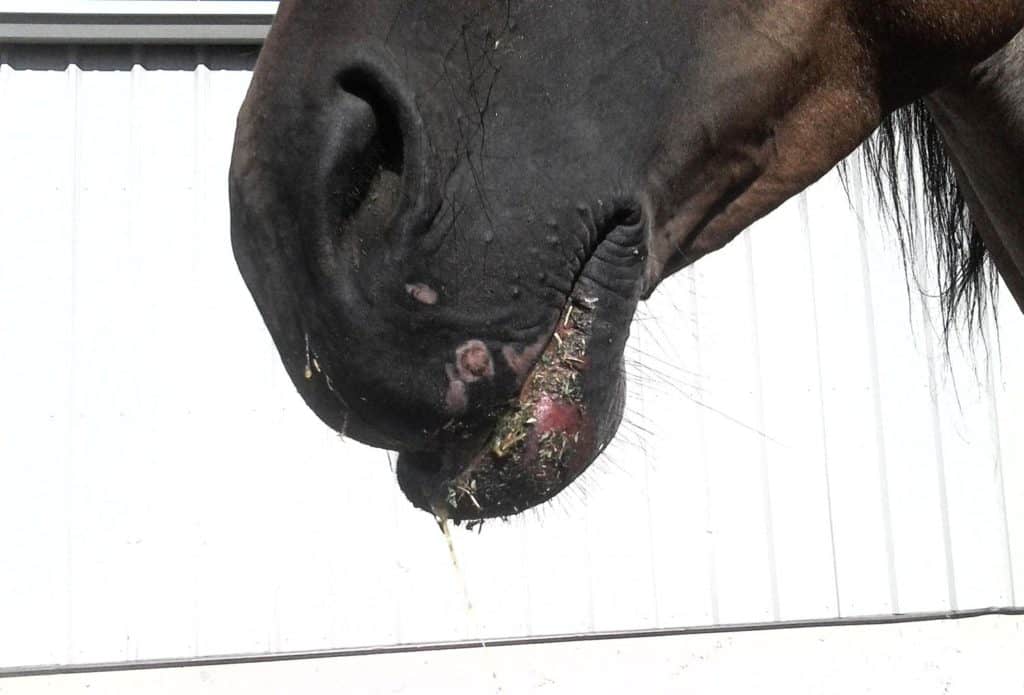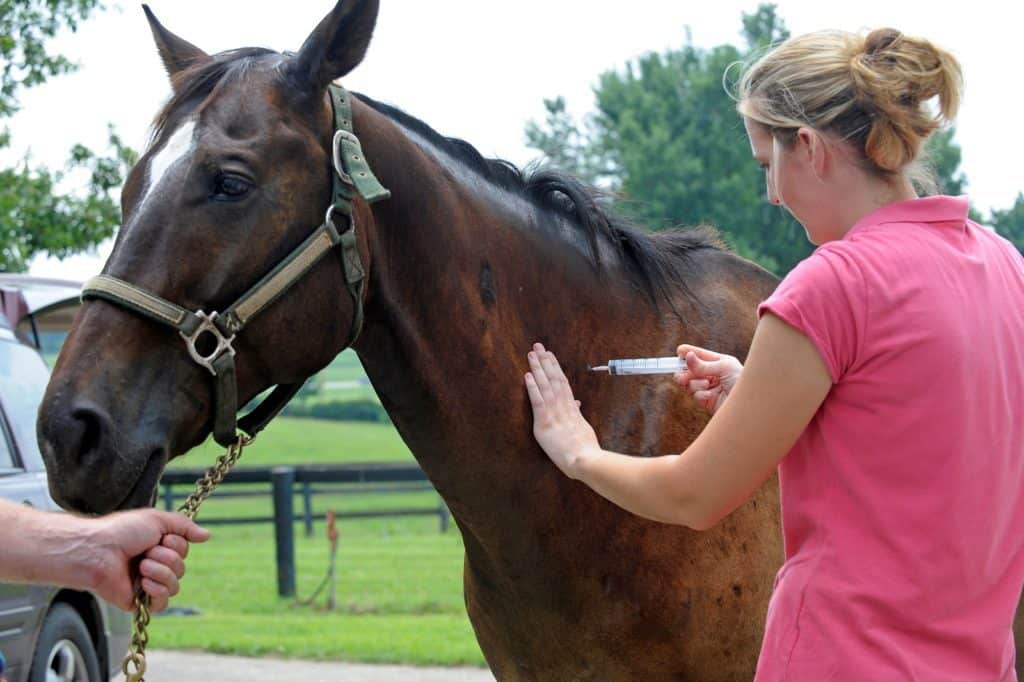
Vesicular Stomatitis or Cheat Grass/Foxtail Sores?
Dr. Paul Morley of CSU’s School of Veterinary Medicine describes the difference between VS lesions and other sores.

Dr. Paul Morley of CSU’s School of Veterinary Medicine describes the difference between VS lesions and other sores.

While the deadly disease is endemic in Brazil, animal health authorities say the Rio Games’ equestrian facility is safe.

Vesicular stomatitis is known for causing severe mouth blisters, but did you know it can cause foot lesions as well? The USDA’s Dr. Angela Pelzel-McClusky explains.

Gellin is studying the epidemiology of leptospirosis in Central Kentucky and horses’ immune response to the disease.

Potomac horse fever was confirmed in two Frederick County horses, one of which died from the disease.

Zika virus recently made news for its reported link to human birth defects. But can this WNV relative affect horses?

Vesicular Stomatitis causes mouth blisters, coronet band lesions lameness, and more. Learn about this insect-spread disease’s clinical signs from Dr. Angela Pelzel-McClusky, who serves as the USDA’s national equine epidemiologist.

Dr. Paul Morley of Colorado State University explains how insects can transmit vesicular stomatitis between horses and cattle and horses, as well as other ways the disease can spread.

Design a feeding program that provides adequate calories without putting the horse at risk for gastrointestinal upset.

Learn to recognize the signs of various temperature-raising conditions in horses.

A pathologist shares his thoughts on evolving microbes and how researchers are working to control associated disease.

A recently discovered resistance gene in bacteria has focused attention on emerging multidrug resistance.

Many diseases were once considered geographically restricted. But disease migration has eliminated that complacency.
Diagnosed diseases include vesicular stomatitis, EHV, strangles, influenza, piroplasmosis, rabies, and more.

The document chronicles simple ways for owners and handlers to protect horses from disease.

Is your horse protected from infectious disease? Here are tips on how to keep him safe at home and on the road.
Stay on top of the most recent Horse Health news with
"*" indicates required fields